Trump Getting Tougher, Voters Say, But Most Want Russia As A Friend
Voters think President Trump is getting more aggressive with Russia, but most continue to believe it’s better to have the former Soviet Union as a friend than an enemy.

Voters think President Trump is getting more aggressive with Russia, but most continue to believe it’s better to have the former Soviet Union as a friend than an enemy.

Anyone heard anything about Martin O'Malley lately? Four years ago, he was busy out in Iowa running for president. After two successful terms as mayor of Baltimore (homicides fell during his years) and as governor of Maryland, he seemed like a plausible candidate. Strumming his guitar and singing Irish songs, he seemed more likable than either Hillary Clinton or Bernie Sanders.

Facing a Parliamentary majority opposed to a hard Brexit -- a crashing out of the EU if Britain is not offered a deal she can live with -- Boris Johnson took matters into his own hands.
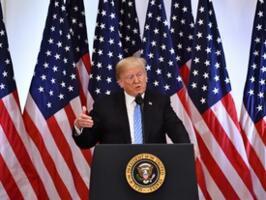
A former Illinois congressman is now the second candidate to announce he is challenging President Trump for the Republican presidential nomination in 2020, but it’s overwhelmingly Trump all the way for GOP voters.

The one big exception to the stability in the Democratic race; Trump’s high GOP approval defines the Republican primary; special developments in Georgia, Wisconsin.
— The Democratic primary race has been very stable, with the biggest exception being Elizabeth Warren’s rise to become one of the clear frontrunners.
— Donald Trump is attracting primary challengers, but his standing within the GOP remains strong.
— Sen. Johnny Isakson’s (R-GA) pending resignation expands the Senate playing field next year.
— Rep. Sean Duffy’s (R, WI-7) pending resignation sets up another House special election on Republican-leaning turf. The GOP remains favored to hold the district.

Most Americans agree that racism is a problem in this country but reject the idea that America has been racist from the very start. They also tend to think we talk too much about racism these days.

The New York Times and others are complaining that allies of President Trump are targeting hostile reporters by exposing controversial social media postings from their past. But most voters consider these reporters fair game for public criticism.

Dear fellow patriots: It's time to stop making nice with those who are waging war on ICE.

Why does most of Africa stay poor while other parts of the world prosper?
People blame things like climate, the history of colonialism, racism, etc.

Voters give positive marks to the U.S. economy these days, but thanks to the usual partisan division on most all things Trump, they tend to think the president has little or nothing to do with it.

President Donald Trump, who canceled a missile strike on Iran, after the shoot-down of a U.S. Predator drone, to avoid killing Iranians, may not want a U.S. war with Iran. But the same cannot be said of Bibi Netanyahu.

Last week, I gave a talk to high-wealth investors in San Francisco -- not exactly an audience of left-wing activists -- and people kept asking me the question of the day: "Will there be a recession?" My reply: I'd never say never, but I don't see a recession in 2020. And if we get a trade deal with China, the economy is going to soar.
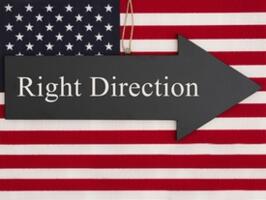
Forty-one percent (41%) of Likely U.S. Voters think the country is heading in the right direction, according to a new Rasmussen Reports national telephone and online survey for the week ending August 22.
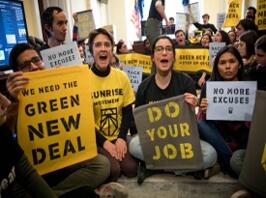
Voters are almost evenly divided on a multi-trillion dollar Green New Deal plan to tackle climate change by Democratic presidential hopeful Bernie Sanders that would impact nearly all of the federal government.

While the moniker “fake news” is typically reserved for cable news and some of the more prominent newspapers in America, the term could also be applied to presidential polls. How many pollsters predicted Hillary Clinton would win the 2016 election by a landslide up to and including the day of the actual election?

In surveys last week, this is what America told Rasmussen Reports...

There is no other way to say it: It was a political assassination.
Osama bin Laden was unarmed. SEALs captured him alive. Following brazenly illegal orders from Washington, they executed him. "The (Obama) administration had made clear to the military's clandestine Joint Special Operations Command that it wanted bin Laden dead," The Atlantic reported on May 4, 2011.
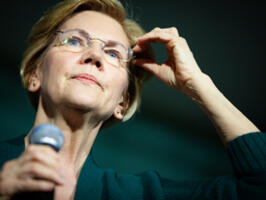
Voters think Democratic presidential hopeful Elizabeth Warren has lied about her Native American heritage in the past, but most also say it’s not a critical issue when it comes to how they will vote.
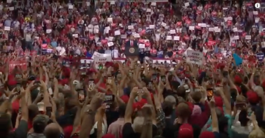
When Bill Clinton successfully unseated sitting President George HW Bush in 1992, Clinton’s campaign manager James Carville coined the phrase, “The economy, stupid” as a campaign theme.

To those of us of who learned our U.S. history from texts in the 1940s and '50s, President Donald Trump's brainstorm of acquiring Greenland fits into a venerable tradition of American expansionism.